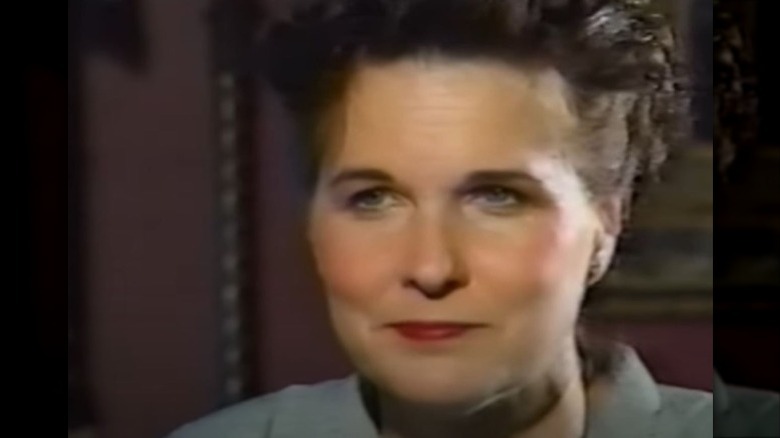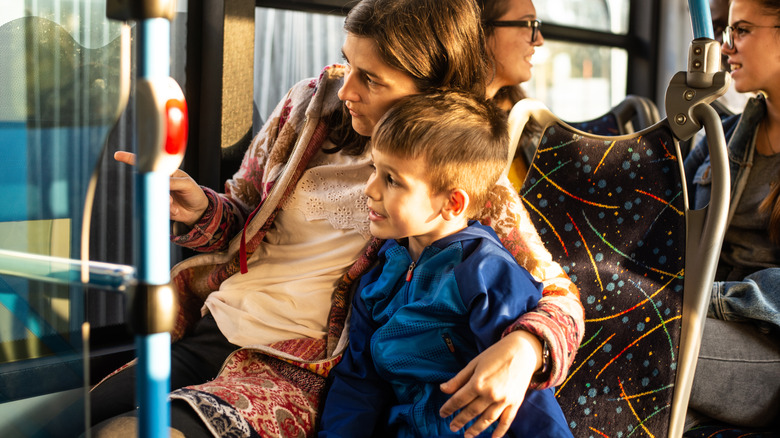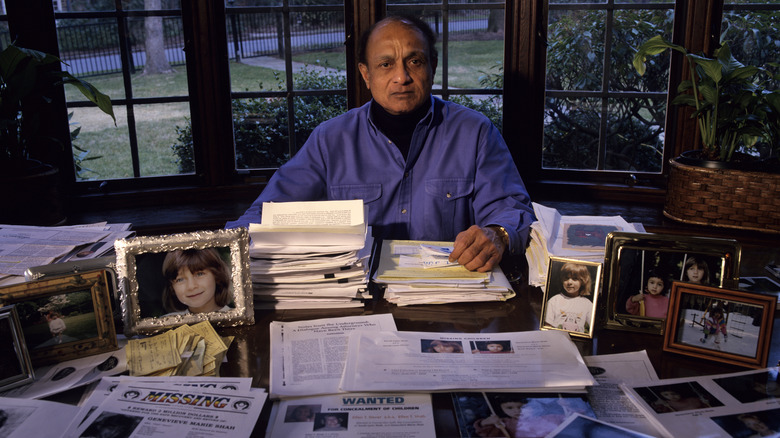Does Faye Yager Of Children Of The Underground Still Work In Her Organization?
In the late 1980s and early 1990s, Faye Yager served as the public face of an underground organization that helped parents go into hiding with their children after alleging that the children had suffered abuse from the other parent (via People magazine). This organization was driven largely in part by a perceived failure on the part of the legal system to protect the children from harm. The group has become known as Children of the Underground.
Yager stood up for those who she felt had been wronged by the justice system and who were left with little or no legal recourse. She rallied an array of like-minded individuals from all kinds of organizations –- religious groups and champions of children's rights and women's rights –- to support her efforts. She sought to help in cases where the courts ignored evidence of abuse and awarded custody to the abusive parent. This was a story that Yager knew all too well.
Yager lost custody of her first child
Yager's move to activism, or some say vigilantism, was driven by her own personal trauma. Born Billie Faye Wisen, she grew up as the daughter of a coal miner in West Virginia, according to writer Sabrina Rubin Erdely's article for Harper's Bazaar. Yager got married at 17 to Roger Jones, and the couple soon had a daughter named Michelle. She discovered that her husband was sexually abusing their daughter when she was only two years old. Yager walked in on her husband abusing the child, but her account of the incident wasn't taken seriously. Her husband had her hospitalized, claiming that she was mentally ill, per Time magazine.
Yager was medicated and given shock treatments, but she somehow managed to get out of the hospital. This incident was used against her during the custody battle, and she even ran away with Michelle for a while. Yager eventually returned, believing that her daughter testing positive for a sexually transmitted disease would be enough proof of her husband's abuse. Unfortunately, she was wrong. Jones ended up receiving custody of their daughter. Years later, he was convicted of molesting some young girls in Florida, according to the Sun Sentinel.
Yager helped other parents and children escape alleged abuse
Yager remarried, but that union proved to be a disaster (via Time magazine). Her second husband had mental health issues, and he ended up committing suicide. She found a lasting love with her third husband, Harold Yager, a doctor. Together the Yagers lived a life of affluence near Atlanta, Georgia, according to People magazine. They had four children together, and Faye did what she could to help her daughter Michelle who ended up pregnant at 16.
A newspaper headline about the case of a mother trying to end the abuse her children, suffered at the hands of her ex-husband in Mississippi, changed the course of Yager's life (via People). In that moment, "I understood I wasn't the only one," Yager explained. "I saw this as my chance to change things, to make some sense out of what I had lived through." She started working with a group led by Lydia Rayner that acted as an underground network to help parents like herself escape from their spouses to protect their children.
Yager became the face of Children of the Underground
Yager and Rayner parted ways in the late 1980s over how to handle these challenging and complex cases. Rayner later told Time magazine that she thought Yager was prone to exaggeration in her media interviews and that Yager wasn't careful enough in which parents she chose to help. These concerns didn't prevent Yager from becoming the best known figure in this movement, however. She became a popular TV talk show guest, making appearances on such shows as "Geraldo" (host Geraldo Rivera seen above) and "Sally Jesse Raphael."
By 1992, Yager stated that she had helped roughly 2,000 families and half of those she helped go into hiding (via The New York Times). To get help from her organization, parents called a hotline and were asked to send documentation on the custody battle and the abuse claims. She and the members of her organization used tactics that seemed to be borrowed from a spy novel. Those seeking help had to follow detailed instructions, moved frequently through a network of safe houses, and created new identities by borrowing names from the deceased, according to the Dart Center for Journalism & Trauma. Many of the organization's volunteers were only known by the codename "Sally."
Yager was hit with lawsuits and threats
Yager shared many details of her organization's inner workings with People magazine in 1989. She explained that the group had roughly 1,000 safe places offered up by its volunteers. Everyone involved seemed to be willing to face potential legal consequences to aid these parents and children in their quest to evade former spouses, the courts, the police, and the FBI. Yager's own Atlanta home served as a processing center of sorts with stacks of custody documents covering her dining room table.
With all of the media attention surrounding Yager, it also made her a target for those who disagreed with her and those who felt wronged by her actions. She told People that she had been run off the road by another car and the driver got out and threatened her life. Dead animals were also put in her yard. Yager became a popular person for the FBI to interview whenever one of these cases of a parent disappearing with children occurred. Rather than threaten harm, some of those who opposed Yager or her methods chose to fight her on the legal battlefield.
Yager battled criminal charges and other challenges
One of the biggest cases against Yager went to trial in 1992. According to The New York Times, she was charged with cruelty to children, interference with custody, and kidnapping in connection with her interactions with two children. It must have been especially challenging for her, considering how much the courts had failed her daughter and all of the other injustices she had seen. In this case, the children had met with Yager after their mother alleged that they had been abused by their father. The prosecutor claimed that Yager had badgered and haragued them into making false statements about sexual abuse. She was acquitted on all charges in this case.
Yager also faced the wrath of wealthy businessman Bipin Shah (pictured above) after she and her organization helped his ex-wife Ellen flee the country with their two daughters, per Time magazine. He sued her for $100 million and sought to bring down Children of the Underground, but his threats didn't faze Yager. She defended her decision to help Ellen Shah, saying "This is a woman who was in danger." Bipin Shah claimed that he never abused his ex-wife nor his children. He used his extensive resources to locate his children in Europe and bring them home. His ex-wife returned to the United States soon after, and he chose to have the charges dropped against her. He also abandoned his suit against Yager (via the Hartford Courant).
Yager's life now
By 2002, Yager seemed to be living a different kind of life. She and her husband had taken their lives in a new direction, moving to North Carolina and buying the Inn at Brevard. According to the inn's website, the couple still runs the 14-room establishment. But does this lifestyle change mean that Yager has given up on Children of the Underground? The answer to that seems to depend on who you ask.
In 2022, her daughter, Michelle Jones French, tweeted to the Family Abduction Watch that her mother had stopped working with Children of the Underground after the Bipin Shah case. But in 2016, Yager herself spoke to Newsweek and it seemed like she was actively helping families. She said that "my group still exists." She explained that helping people disappear had gotten more difficult, but it was still doable. Yager didn't want to share too many details because the FBI still kept an eye on her. She needed to be careful as she was still getting a few calls a week from those looking for help. Yager also claimed that she had many more safe houses in the network than she did originally.






